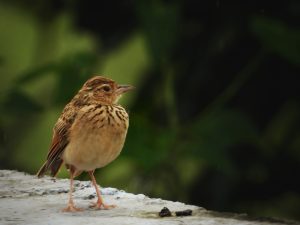Larks, those small, brown birds with melodious songs, are a beloved sight in many parts of the world. These unassuming creatures play a vital role in ecosystems, but their lives can be challenging. Questions about their lifespan, such as “How long do Larks live?” and about their health issues are common among bird enthusiasts and conservationists. By understanding the factors influencing Lark lifespan, we can better appreciate these birds and contribute to their conservation.
Understanding Larks
Larks belong to the Alaudidae family and encompass a diverse group of bird species. They are known for their ground-dwelling habits, often found in open fields, grasslands, and agricultural areas. Their ability to produce complex songs, delivered during soaring flights, is a captivating characteristic. Larks are important components of the food chain, serving as prey for various predators while also controlling insect populations.
Average Lifespan of Larks
The average lifespan of a Lark varies depending on species, habitat, and environmental conditions. Generally, Larks in the wild have a relatively short lifespan compared to larger bird species. Most Larks live between 2 to 5 years. However, some individuals, with ideal conditions and minimal threats, can live up to 8 years.
Several factors influence a Lark’s lifespan. Diet plays a crucial role, as a balanced diet provides essential nutrients for survival. The availability of food sources, particularly during harsh weather conditions, can significantly impact a Lark’s longevity. Additionally, the Lark’s habitat is essential. Areas with abundant cover for nesting and protection from predators offer better chances of survival. Predation is a major threat to Larks, with various animals, including cats, hawks, and foxes, posing a risk.
Larks in captivity can live longer than their wild counterparts due to protected environments and controlled diets. However, captivity also presents unique challenges, such as the risk of diseases and lack of natural stimulation.

Health Problems Affecting Larks
Larks, like many other birds, are susceptible to a range of health issues that can impact their lifespan. Common problems include:
- Parasites: External parasites like mites and ticks can cause discomfort and weaken a lark’s immune system.
- Diseases: Respiratory infections, bacterial infections, and fungal diseases can affect a lark’s health.
- Injuries: Collisions with buildings, exposure to harsh weather, and attacks by predators can lead to injuries.
These health problems can significantly reduce a lark’s lifespan and reproductive success.
Enhancing the Lifespan of Larks
Creating a suitable habitat is crucial for Lark survival. Preserving grasslands and open areas, while minimizing disturbances, can benefit Lark populations. A balanced diet rich in insects and seeds is essential for their health. Providing supplementary food during harsh winters can also help.
To protect Larks from predators, creating safe nesting sites and reducing the threat of domestic cats can be effective. Vaccination programs can help prevent the spread of diseases.
Conservation Efforts
Many lark species face population declines due to habitat loss, climate change, and other human-induced factors. Conservation efforts are crucial to protect these valuable birds.
- Individual Contributions. Everyone can contribute to lark conservation by supporting bird-friendly practices, reducing pesticide use, and creating wildlife-friendly gardens.
- Conservation Status. Some lark species are listed as threatened or endangered, highlighting the need for urgent conservation action.
- Protection Measures. Establishing protected areas, implementing habitat restoration projects, and conducting research are essential steps in lark conservation.

Larks, with their cheerful songs and vital ecological roles, deserve our attention and protection. While their lifespan can be relatively short, understanding the factors influencing their longevity allows us to appreciate these birds more deeply. By addressing health issues, conserving habitats, and supporting conservation efforts, we can contribute to a brighter future for Larks. Let us work together to protect these enchanting creatures and their precious ecosystems.




